Do Lithium Batteries Leak? (Facts & Prevention Tips)
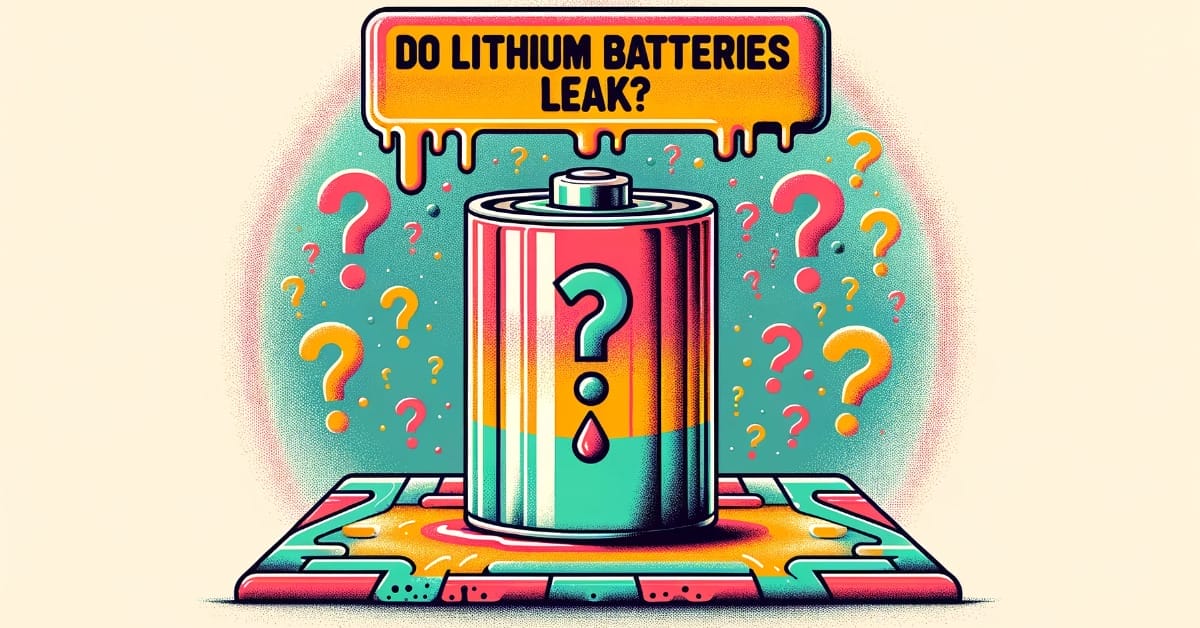
Contents
ToggleEver had a device ruined by battery leakage? We’ve all been there. But what about lithium batteries? Do they leak aswell? Let me tell you, as with any battery type, there are always risks.
Lithium batteries are reliable in normal conditions and won’t leak electrolytes or other chemicals. However, under some abnormal conditions, leakage can occur – and I’ll be diving into why and what you can do about it.
So, stick with me, folks, as we explore the world of lithium batteries, their potential for leakage, safety concerns, and how to handle them properly.
It’s worth knowing, especially if you’re constantly using and relying on these little powerhouses!
What Causes Lithium Batteries to Leak
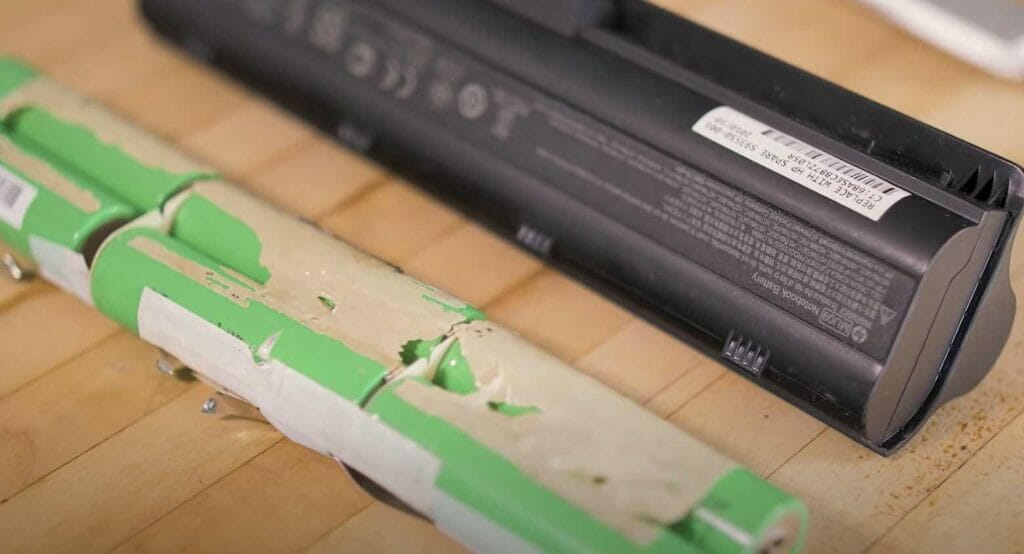
Chemical Reaction
The inside of a lithium battery is like a bustling chemical party! A lot is happening, and sometimes, just like at any great party, things can get a little out of control.
Lithium-ion batteries have an anode and a cathode, and when they undergo a chemical reaction, it creates pressure. This pressure can lead to electrolyte leaks.
If these insulating seals at the ends of the battery are breached, your battery might leak.
Temperature
Temperature plays a major role in the health of your lithium battery.
Excessive heat or cold can cause a lithium battery to expand or contract. This movement can stress the seals and cause them to crack, resulting in leaks.
So, keeping your electronic devices in a comfortable temperature range is key to avoiding a leaky battery!
Overcharging
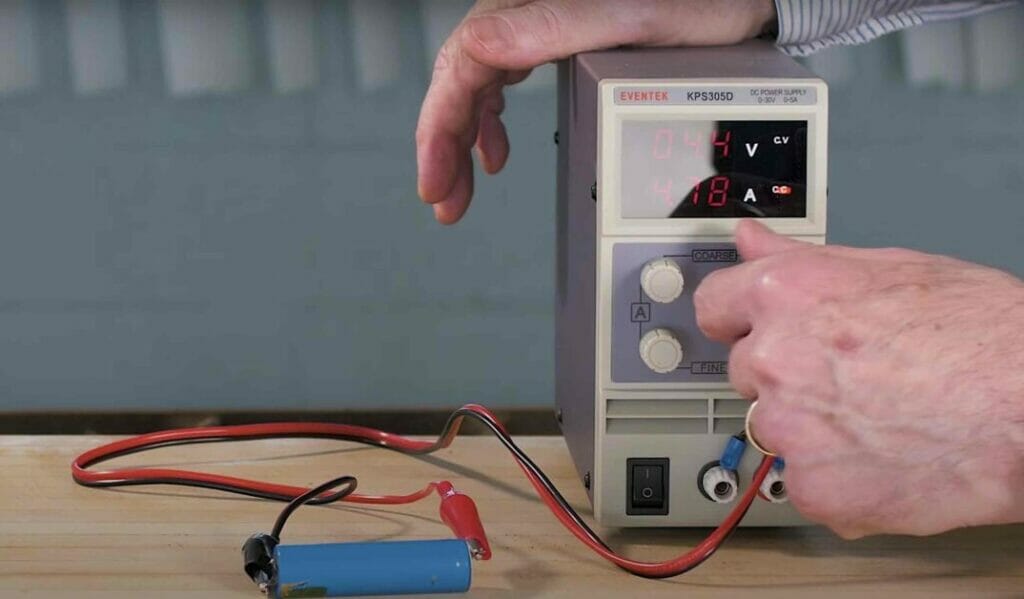
Another thing to watch out for is overcharging. When you go above and beyond with charging your lithium battery, it can cause internal short circuits, which lead to overheating.
Overheating can weaken the seals and cause the battery to leak. Nobody wants a leaking battery on their hands, so let’s watch those chargers, folks!
Physical Damage
As much as I love extreme sports and living life on the edge, it’s important to remember that your lithium batteries are not as adventure-loving as we are!
If your battery experiences a shock from dropping or crushing, that physical damage may allow moisture and oxygen to enter the battery.
This can lead to the oxidation of the lithium components, causing heat reactions. And yup, you guessed it, that can lead to leaks!
Manufacturing Defects
During manufacturing, a battery could leak if there are any hiccups, like excessive internal pressure or unqualified external packaging.
Regarding battery production- accuracy and precision are vital, so using a reputable manufacturer for our battery needs is important.
Signs of Battery Leakage
| Signs of Battery Leakage | What to Look For |
|---|---|
| Corrosion around the battery terminals | Check for a powdery or fuzzy buildup on the terminals or surrounding area. |
| Bulging or swelling of the battery | Inspect the battery for an abnormal shape or size, indicating internal pressure buildup. |
| Foul odor or strange smell | Notice any unusual or pungent odors emanating from the battery. |
| Discoloration or stains on the battery casing | Look for unusual discoloration, stains, or dark spots on the battery surface. |
| Electrical malfunctions or erratic behavior | Pay attention to devices powered by the battery. If they start behaving strangely or stop working altogether, it could be due to leakage. |
| Leakage around the battery | Check for any visible signs of fluid seeping out from the battery casing. |
Potential Dangers of Leaking Batteries
Leaking batteries are something nobody wants to deal with, but understanding the potential dangers of this annoying issue is crucial for our safety. So, buckle up as I dive into these hazards.
Fire and Explosion Hazards

If there’s one thing I’ve seen, lithium batteries can present serious fire and explosion risks when they leak. You see, overheating is a major cause of lithium-ion battery failures.
When things get too hot, like a faulty charger or a short circuit, the battery can undergo thermal runaway – it’s a fancy term for when the temperature keeps rising uncontrollably!
This heat buildup can damage the battery’s internal structure, releasing flammable gases and even causing a fire or explosion!
So, whenever you’re handling a device with a lithium battery, you always want to ensure everything is nice, cool, and in proper working order.
Toxic Substances and Health Risks
When lithium-ion batteries leak, they can release hazardous chemicals such as cobalt and manganese. These toxic substances pose environmental damage and are definitely not good for our health.
If the leaked chemicals come into contact with your skin, they can irritate and, in some severe cases, may even lead to greater health risks.
So remember folks: always handle leaking batteries with caution, and don’t hesitate to call in the experts if you’re unsure how to deal with them.
Corrosion and Equipment Damage
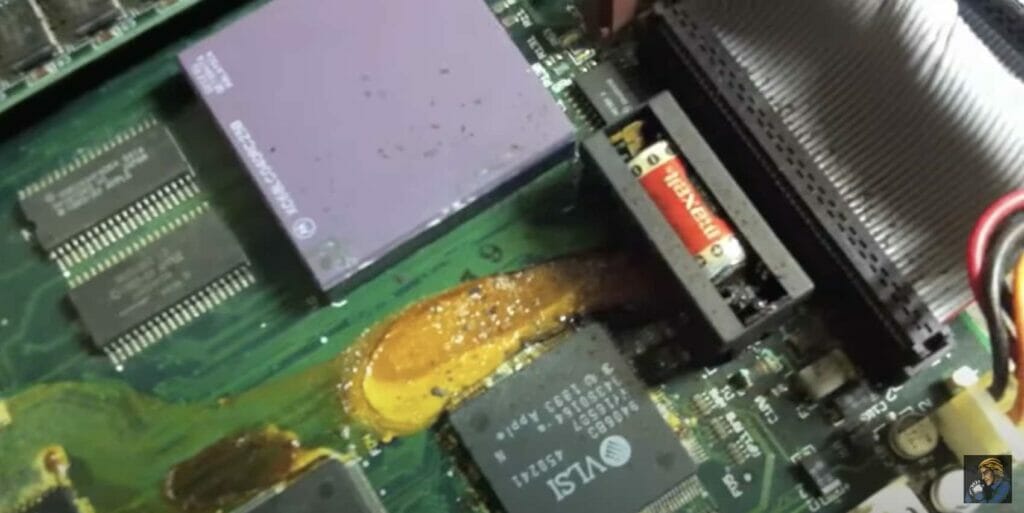
Leaking batteries can corrode or damage the device they’re in, especially if the outer steel canister rusts and corrodes. Devices could fail, break down, or require some serious cleaning.
To avoid this, check your devices for leakage and battery corrosion signs. Trust me; you don’t want to be caught off guard by a damaged device when you need it most!
Preventing Battery Leakage
It’s time to talk about an essential topic – preventing battery leakage! Let’s dive right in and explore how to keep those pesky leaks at bay.
Proper Storage Conditions
First things first, proper storage is key. I can’t stress enough how important it is to store your batteries in a cool, dry place. Moisture is a big no-no, as it can cause corrosion and increase the risk of leakage.
Keep your batteries away from direct sunlight and avoid extreme temperatures. Room temperature is perfect for keeping them in tip-top shape.
Recharging Practices

Now, onto recharging practices. Whether you’re using rechargeable alkaline batteries or the fancy lithium-ion type, keeping track of their charging is essential.
Overcharging and complete discharge can harm battery performance and cause leaks.
Here are some tips for good recharging habits:
- Use a reliable charger designed for your battery type.
- Keep an eye on the charging time, and don’t let it exceed the recommended duration.
- Make sure you charge your batteries before they’re completely drained. This helps maintain their durability.
Remember, folks, a little attention to recharging can go a long way in preventing battery leaks.
Battery Maintenance
Taking good care of our batteries is crucial to ensure they stay safe and last longer. One important job is regularly checking on them for signs of damage or corrosion.
I have some more battery maintenance tips up my sleeve:
- Perform routine visual inspections to catch any issues early.
- Replace old or damaged batteries – they’re not worth the risk!
- Keep batteries clean and dust-free, as grime can lead to leakage or even an explosion.
A solid battery management system – for your toys, energy storage solution, or any other devices – will help you minimize damaging leaks and maximize performance.
Cleaning Battery Leaks
Removing the Battery
When lithium batteries leak, it’s essential to remove the battery from the device carefully.
Take extra care when handling. Remember to wear gloves and eye protection for added safety since we deal with chemicals.
Cleaning Methods
Once the battery is removed, it’s time to clean! Battery leaks usually involve the formation of potassium carbonate, which can be neutralized using acids like lemon juice or distilled white vinegar.
You can also use baking soda. So, grab a cotton swab, dip it in either lemon juice, vinegar, or baking soda, and gently dab it onto the affected area.
If your device is stubbornly corrupted, here’s a helpful tip: use an old toothbrush dipped in the vinegar or lemon juice solution. Be sure not to scrub too hard, as you could cause further damage.
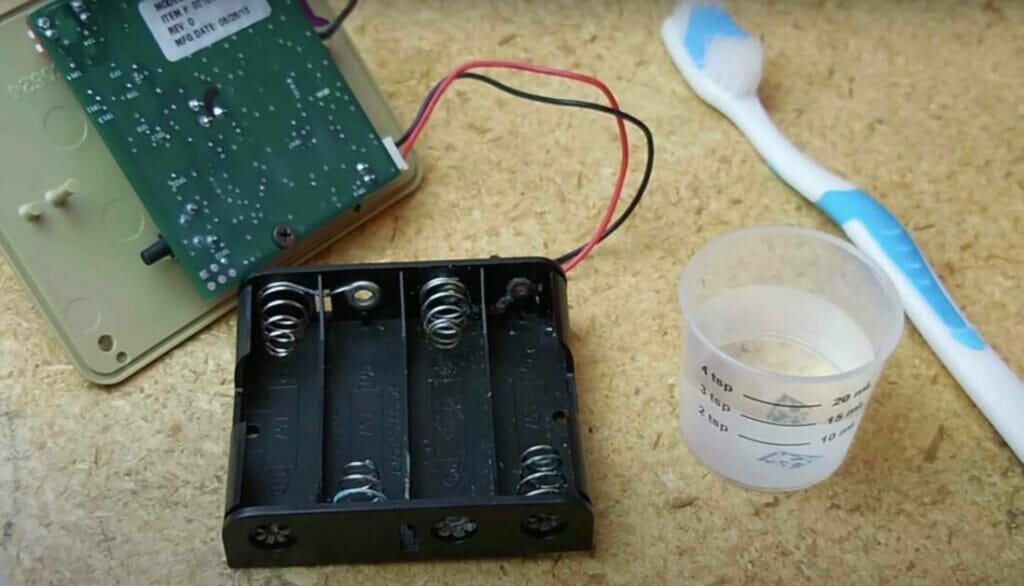
Safety Precautions
Carefully dry the area with a clean cloth once the fizzing stops and the leakage is neutralized. The goal is to thoroughly clean the battery leakage to prevent any long-term damage to the device.
When dealing with battery leaks, it’s essential to be mindful of safety precautions. Be extra cautious when handling hydrofluoric acid, as it can cause severe harm if it comes into contact with your skin or clothing.
Always wear protective gear, such as gloves and eye protection, when cleaning battery leaks.
Remember that some lithium batteries, like rechargeable ones, might require special handling.
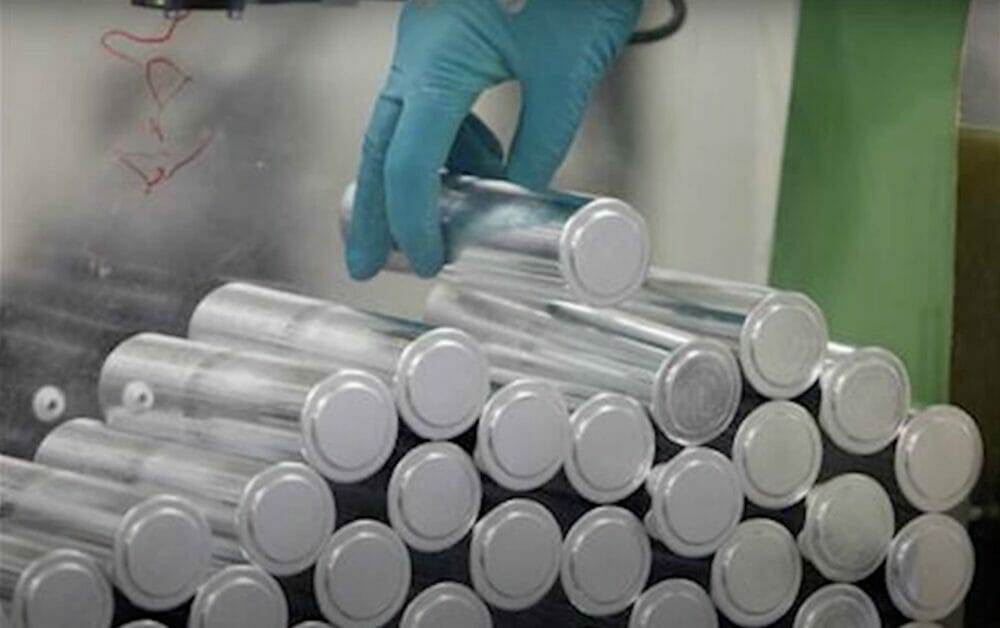
It’s important to follow the manufacturer’s guidelines for proper disposal, as improperly discarded batteries can lead to environmental damage.
To sum it up, cleaning battery leaks might seem daunting at first, but I can assure you that it can be a relatively simple process with the right approach and safety measures in place.
Just remember lemon juice, vinegar, and baking soda are your best friends when neutralizing battery leaks. Don’t forget to use protective gear when handling potentially harmful chemicals.
Stay safe, and happy cleaning!
References
Studies:
- A Review of Lithium-Ion Battery Failure Hazards: Test Standards, Accident Analysis, and Safety Suggestions. https://www.mdpi.com/2313-0105/8/11/248
- Safety Issues in Lithium Ion Batteries: Materials and Cell Design. https://www.frontiersin.org/articles/10.3389/fenrg.2019.00065/full
- Safety challenges and safety measures of Li-ion batteries. https://onlinelibrary.wiley.com/doi/full/10.1002/ese3.895
Organizations:
- Battery Council International (BCI). https://batterycouncil.org/
Books:
- “Lithium Batteries: Science and Technology” by Christian Julien, Alain Mauger, Ashok Vijh, Karim Zaghib
- “Lithium-Ion Batteries Hazard and Use Assessment” by Celina Mikolajczak, Michael Kahn, Kevin White, Richard Thomas Long
Website Resources:
- Battery University. https://batteryuniversity.com/
Video References
ARIES RC
K8MRD RADIO STUFF

EE World Online
Shane McRetro
electronicsNmore
How helpful was this article?
Were Sorry This Was Not Helpful!
Let us improve this post!
Please Tell Us How We Can Improve This Article.
